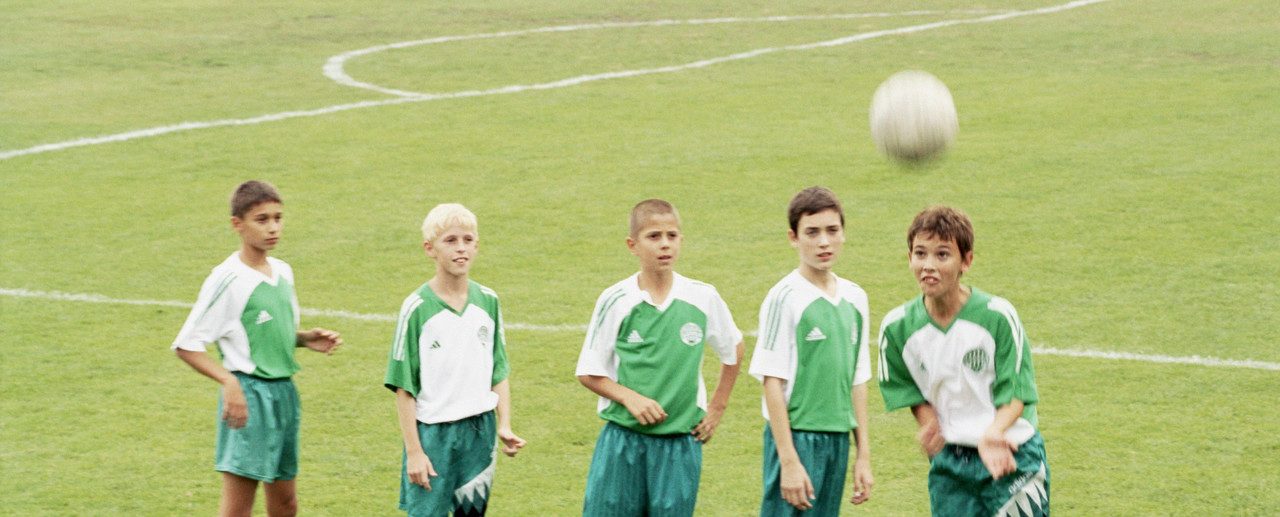Cultivating a Growth Mindset in Children: Why and How

If you haven’t become acquainted with the concept of a growth mindset, you are in the minority.
Not that growth mindset is a fad. Stanford professor Carol Dweck popularized the phase in her 2007 book “Mindset: The New Psychology of Success,” based on more than two decades of influential research on children and motivation.
Therein lies the beauty of the work. It is deeply rooted in science, and has proven to resonate with the masses. The reason, I suspect, is that it is a very solid idea that has been distilled down to its essence, making it easy to apply in everyday life.
YOU MIGHT ALSO LIKE: Has Childhood Become Too Stressful?
Let’s start with the concept of “mindset.” It can be described as your belief system about “human qualities,” be they intelligence, ability, personality. Dweck breaks this down into two forms or mindsets: fixed versus growth. As you may have already gathered, a growth mindset is much more adaptive and productive.
Here’s why. A fixed mindset assumes that — using the example of “smartness” — this trait is doled out in the population in a way that makes it essentially impossible to modify. Some kids are great at math, whereas others are not. Some kids are amazing at art, while others are terrible at it. The net effect of the fixed mindset is that applying effort is not going to change someone’s inherent rank ordering in that skill. A bit of an oversimplification for sure on my part, but the reality is that a fixed mindset is the enemy of motivation. You are what you are, and once you determine what you are, there’s not much in the way of reason that would motivate you to change what fundamentally is unchangeable.
Take the example of math ability. At some point in developmental time, kids get the notion into their heads that some kids are really good at math and some are not. Imagine the seventh-grade boy who has not had a lot of success in math through the years. At this age, he might figure that he’s terrible at math. So when he encounters difficulties in his math class, he begins to lose motivation to keep working hard at it, which feels like pounding one’s head against a brick wall. That’s a fixed mindset, one that undoubtedly gets reinforced to some degree by poor grades and potential comments by teachers, parents, or other kids.
What about the top math wiz in the class? To what does she attribute her brilliance? Here’s the interesting twist: if she has a fixed mindset, her thinking is the same as the kid who is doing poorly. She would conclude that she is fantastic at math. And again her experiences in the classroom and outside of it would probably reinforce that perspective, to the point that she is getting rewarded for a very high level of performance that she doesn’t have to work very hard to achieve.
At this point, you might think this all makes sense. Why should these kids be thinking differently, especially as it matches how it all plays out in their world?
The thing is, both kids can, and would, profit from changing their mindset to make room for the possibility that abilities aren’t necessary so “fixed” that effort won’t make a difference.
The implications for the kid doing badly at math are self-evident: a defeatist attitude inhibits the possibility of getting better at math, which could in fact be a very attainable goal. Sometimes kids hit blocks, sometimes they need to learn things in a different way, sometimes they can change up how they study and work to make things more understandable. And while that kid may not turn into an advanced math student, he may be able to make very notable strides over time via learning how to work “smarter” (not necessarily “harder”). But most importantly, that won’t happen if he clings to a fixed mindset, which would sap the motivational fuel out of his tank and short circuit any attempts to find ways to improve.
What about the math wiz? Well, the thing is, math continues to get harder, and even math wizzes can find themselves struggling with material at some point in time. The problem is that, as Dweck observes, a fixed mindset will not come in handy. In fact, if that seventh-grade math star enters an advanced class (perhaps with older students) she might not only have a hard time but also observe other kids doing better than her (maybe for the first time in her life). What happens may sound counterintuitive, but if she clings to a fixed mindset, she may conclude that the world is still divided into those who are, and aren’t, great at math — and as such, she had been mistaken, as she actually falls into the category of a kid who is not great at math. So now the challenge of new material will turn a kid who clearly has advanced math capabilities into a child who is not motivated to take on a challenge and fight through it.
YOU MIGHT ALSO LIKE: 3 “C Words” to Build Your Child’s Social Skills
So, what both kids need is a growth mindset, one that places the spotlight on the importance of effort and the possibility of improvement. It doesn’t fully ignore the idea of some people being “better” than others at something, but rather dismisses the relevance, as the point is to see where you are at with math, and to dig in and figure out what you can do to improve. That’s the “growth” part of growth mindset — it’s about honest assessment, taking stock to see what needs to be done next, and having the confidence that effort will lead to some form of improvement over time. It’s about filling up the motivational gas tank with the highest level of octane.
Dweck and her collaborators have done requisite studies to demonstrate the empirical backing for the concept. This does not need to be rehashed here. But as proof of principle, consider her research showing that middle school math honor students who were beginning to struggle with advanced material profited much more strongly from training in growth mindset than they did from traditional tutoring. It was more influential to give them tools to improve their motivation rather than try to give them additional instruction.
Given this, how do you cultivate a growth mindset in kids of any age? In “Raising Can-Do Kids,” we broke it down this way.
First, limit criticism. Criticism is a punishment and a great way to instill a fixed mindset. If you are constantly being told there is something “wrong” with what you are doing, you will eventually think there is something “wrong” with you.
That said, this doesn’t mean you can’t offer something to your kids, or have to pretend that everything they do is great. In fact, Dweck has become known for emphasizing the “inverse power of praise” — meaning that the more you praise for nothing, the more you are emphasizing a fixed mindset (albeit a positive one). Her suggestion has been to reinforce effort rather than outcome. If your kid is doing great at math, or doing horribly, they already know that. What you want to do is encourage effort and support it when you see it. That’s a growth mindset.
Based on these two principles, I believe strongly that the best thing a parent can do is give kids opportunities to work through reasonable challenges and opportunities. I emphasize both because growth mindset isn’t just about taking on the difficult — it’s about embracing the power of effort and motivation and growth. Kids need lots of chances for open-ended exploration that cultivates their ability to be problem-solvers and practice critical thinking skills that drive effort. It doesn’t matter what domain we are talking about. It could be cooking, dance, sports, or learning a new language. It could be mucking around with anything that interests them. At home, you can give them encouragement and freedom to explore what turns them on, notice how engaged they get, share their enthusiasm, and help them understand that they should be creative when they encounter frustrations and setbacks because they have the capacity to get better. Try and try again, and in fact don’t be afraid to try differently.
The reality is that the world will offer lots of messages to the contrary, which for me makes it even more important to inoculate kids with a growth mindset at home. In particular, I worry that grades essentially function as a way of reinforcing a fixed mindset, whereas well-articulated, constructive feedback carries with it the growth mindset philosophy along with suggestions for improvement.
While I’ve seen evidence for this over decades as an educator, I recall a college freshman a few years ago struggling in Introduction to Psychology, along with other classes he was taking. He had been putting in extensive time in the college tutoring center but wasn’t seeing any impact on his grades, even though he was putting in extra effort. We ended up chatting for about 45 minutes, during which time I simply suggested that he take a step back and think about what strategies weren’t working, and what he could do differently — working “smarter” rather than “harder” as he was already logging too many extra hours with nothing to show for it. He and I tossed lots of ideas around — including simple things like not being afraid to raise his hand in class and ask for clarification if he wasn’t clear on something. In my class, he went from a C- to an A- in the span of two months. He experienced similar successes in other classes as well. While he found specific strategies to direct his efforts, what he really discovered was the importance of a growth mindset, which transcended any inferences from his grades, both the C- and the A-. He learned that he had the capacity to direct his own learning and get better, a lesson he would then be able to lean on for the rest of his life.
YOU MIGHT ALSO LIKE: Is Your Child Getting the Right Amount of Sleep?


